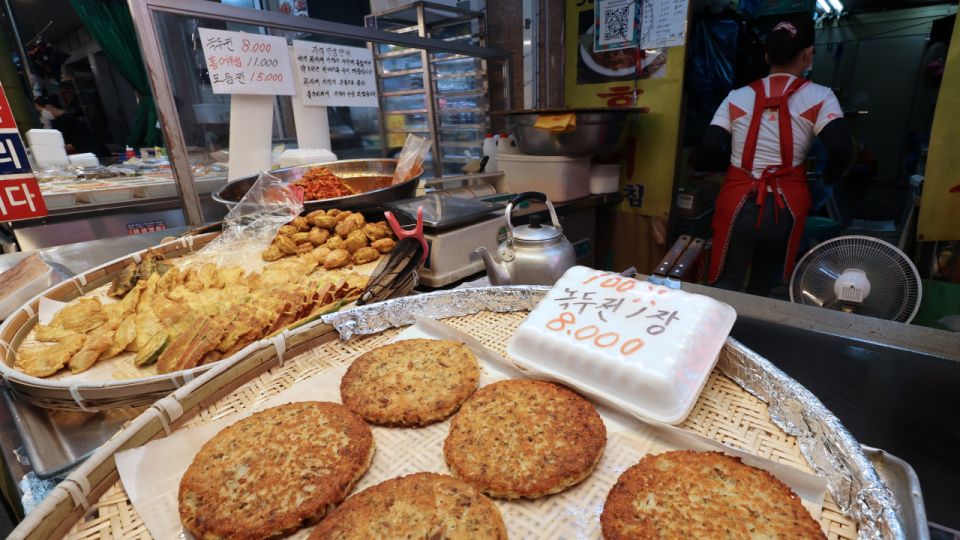June 1, 2022
SEJONG — The government on Monday unveiled a package to the improve living conditions of households suffering from a spike in consumer prices, by slashing their expenditure burden for commodities and housing.
A batch of countermeasures — which are likely to cost about 3.1 trillion won ($2.5 billion) in state funds — against the high inflation rate were confirmed during a meeting of economy-related ministers, presided by Deputy Prime Minister and Finance Minister Choo Kyung-ho in Seoul.
A core measure is levying a zero quota tariff on ingredients for food, including wheat, flour, cooking oil, processed eggs and pork, until the end of this year.
As policymakers are set to cut the quota tariff on imported pork from the current 22.5-25 percent to zero percent, it could bring the effect that retail prices of pork products in the local market would be cut by up to 20 percent, said the Ministry of Economy and Finance.
Imposing a quota tariff on cooking oil and flour will also be suspended from the current 5 percent and 3 percent, respectively.
The zero-percent tariff on these items by year-end will be implemented in the coming days, while the same tariff cuts on processed eggs will be extended from the current temporary exemption.
In addition, the value added tax on coffee and cocoa beans will be exempted by 2023, which will have the effect of slashing import prices by 9 percent.
Policymakers said they project these cuts “will have the effect of lowering the nation’s inflation rate by 0.1 percentage point a month.”
In a bid to ease household burden for living expenses, the government will provide the low-income bracket with discount coupons worth 10,000 won per individual for agricultural, livestock and fisheries products.
It also plans to extend a slash in the consumption tax on passenger cars by another six months until the end of the year. A 30 percent cut in the consumption tax on the purchase of passenger cars was supposed to expire this June.
The measures include improvement in resident conditions in terms of home purchase and interest burden on mortgages.
Starting from the third quarter, the upper ceiling of loan-to-value ratio for first-time home buyers will be raised to 80 percent, from the current 60-70 percent.
If a home is priced at 500 million won, first-time buyers could take out mortgage loans of up to 400 million won as long as they are first-time home buyers. But the eased LTV ratio could show difference according to regions and apartment prices.
Amid the situation that the benchmark interest rate continued to climb for more than a year, the government will offer some households conversion of mortgages on high, floating loan rates to low, fixed rates.
In coordination with commercial banks and financial regulators, conversion of loan products worth 20 trillion won will be pushed for, said the Finance Ministry.
Participants in the ministerial meeting also confirmed the government’s recent move to scale back the 2022 property tax burden for home owners holding a single unit to the level in 2020.
In the meeting, Finance Minister Choo warned against hikes in retail prices, saying that some retailers’ reckless participation in raising commodity prices would cause vicious circle in the overall society.
He called for endurance of market participants, stressing that “the high consumer prices growth has mainly been attributed to external factors.”


